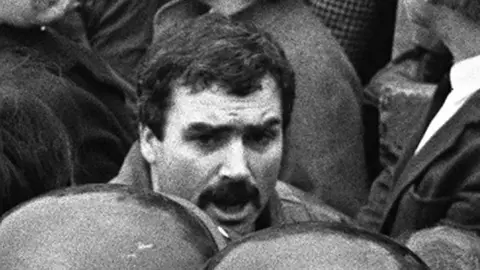Kenova wants government permission to identify IRA agent
 Pacemaker Press
Pacemaker PressOperation Kenova wants government permission to publicly identify the agent within the IRA known as Stakeknife in its final report due in early 2025.
The agent is widely accepted to have been the late Freddie Scappaticci.
Stakeknife has been linked to 14 murders and 15 abductions while working for the British Army within the IRA.
The head of Kenova, Sir Iain Livingstone, has made the request in writing to Secretary of State Hilary Benn.
The interim Kenova report published in March did not confirm Stakeknife's identity.
The failure to do so was met with criticism, including from Kevin Winters, the solicitor who represents relatives of some of Stakeknife's victims.
It is routine practice not to identify agents, a principle known as NCND, an acronym for Neither Confirm Nor Deny.
In his correspondence, Sir Iain reveals he is seeking permission to "confirm the true identity of the agent known as Stakeknife".
He writes: "I believe the blanket application of NCND in legacy cases has the potential to undermine public confidence and add to the grief of families of victims in certain cases.
"I understand from Cabinet Office colleagues that a review of NCND is under consideration.
"An update on progress of this work and HMG's current view would be very helpful."
The letter also asks for confirmation that the government will not, at present, apologise for Stakeknife's actions, one of the interim report's 10 recommendations.
Sir Iain writes: "I understand from Cabinet Office colleagues that, given there are number of civil cases that are outstanding, it is not considered appropriate to make an apology at this time.
"I would, however, be grateful to receive confirmation of HMG's position regarding this recommendation."
A spokesperson for the Northern Ireland Office confirmed the government "has received correspondence from Sir Iain Livingstone," adding it will respond "in due course".
"Our deepest sympathies remain with all the families who lost loved ones during that very dark period in Northern Ireland", the spokesperson said.
